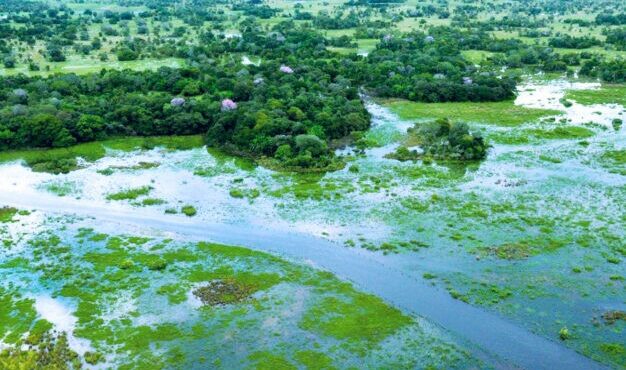
Feedback on the Europe and Central Asia Regional Platform for Disaster Risk Reduction
-
Nature based solutions
-
Global Europe
From 6 to 8 November 2024, Wetlands International Europe joined the Europe and Central Asia Regional Platform for Disaster Risk Reduction hosted in Budva by the Government of Montenegro. Supported by UNDRR, UNDP, the European Commission and the Council of Europe, the Regional Platform comprises 55 countries and gathers stakeholders across governments, civil society and the private sector to address regional disaster risk challenges in the region.
Wetlands International Europe used to be an organising team of previous editions of the Regional platform and supported this year’s edition by contributing to various activities, including a session on UNFCCC COP29.
We were invited as speaker to the Learning Lab on Heat, Drought and Wildfires Risk Governance moderated by Christine Haffner-Sifakis (Mediterranean Forest Protection Initiative, UNEP). Through four presentations, replicable strategies, actionable insights and tools were shared with the audience to address the complex and often interconnected challenges of heat, drought and wildfires.
Paul Brotherton, our Freshwater Manager, emphasised the crucial importance of wetlands nature-based solutions to conserve and restore the water retention function of wet ecosystems. Restoring natural sponges can mitigate wildfire risks in drained and dry lands, as they absorb excess water and release it gradually, by balancing water supply to surrounding vegetation. In doing so, these nature-based solutions enhance landscape resilience in the face of wildfires, drought and floods events.
Nature-based solutions on the spotlight
Serving as natural buffers against extreme weather, mitigating flooding, and storing water and carbon, hosting 40% of global biodiversity and preventing soil erosion, wetlands are critical in realizing the objectives of the Rio Conventions’, the Convention on Wetlands and the Sendai Framework for Disaster Risk Reduction 2015-2030.
Wetlands nature-based solutions respond to the need to address environmental degradation as both a driver and consequence of disasters and constitute an ecosystem-based, multi-benefit and cost-effective approach to risk reduction and climate change adaptation. They shall be considered in multi-hazard, multi-sector, and systemic risk management and assessment, as exemplified within the MYRIAD-EU Horizon project, taking stock what they can provide before, during and after the occurrence of natural hazards.
Wetlands nature-based solutions such as natural sponges bring about numerous co-benefits for nature and society at large. However, their uptake will only be possible if supported by clear political will and strong financial mechanisms. In this regard, we welcome the commitment, embedded in the outcome document of the Regional Platform’s Ministerial Roundtable, to advance objectives supporting nature-based solutions such as wetlands natural sponges. In line with the European Forum for Disaster Risk Reduction (EFDRR) Roadmap 2021-2030, actions to scale up integrated disaster risk reduction and climate change adaptation, by breaking down silos between ministries and fostering meaningful and inclusive stakeholder engagement can create fertile grounds for the uptake of wetlands nature-based solutions.
We strongly support the clear commitment to increase investments in resilient and green infrastructure such as nature-based solutions, which goes hand in hand with the enhancement of both financial mechanisms and Nationally Determined Contributions ambitions.
These commitments are only words, but if they are put into action, they can support the restoration of resilient and safe wetland landscapes for nature and communities.
